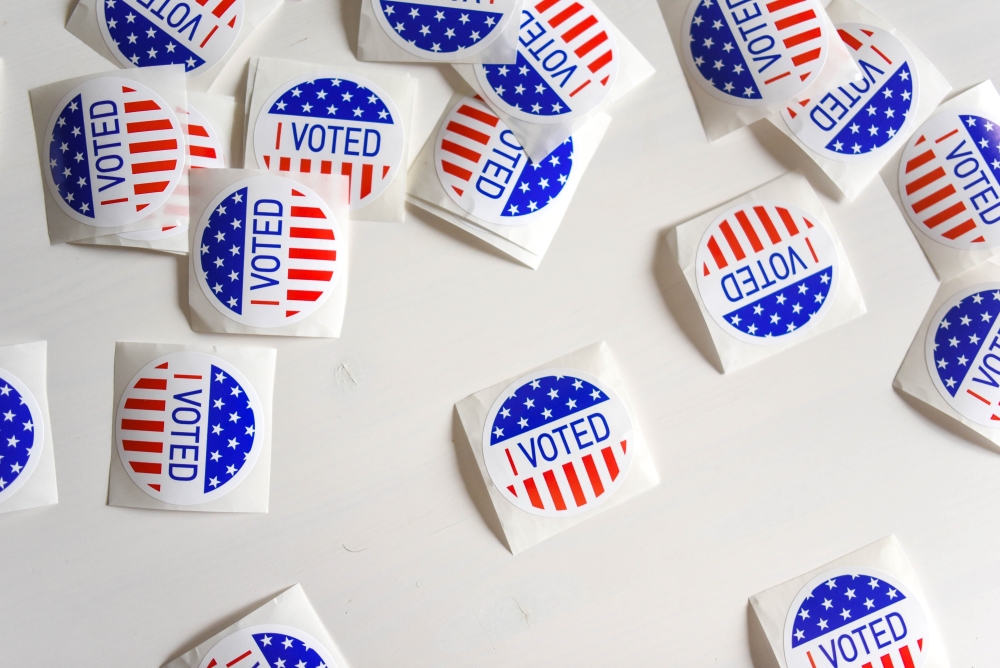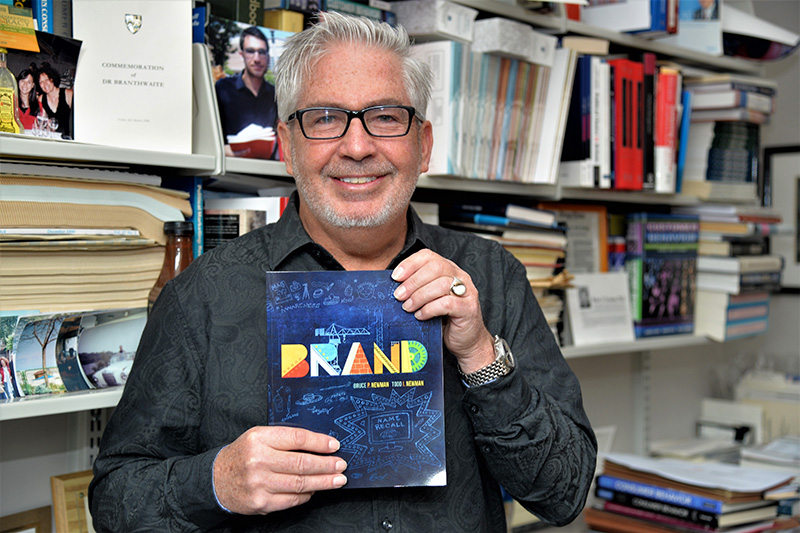 Professor of Marketing Bruce Newman assesses how the pandemic is changing the rules of political marketing.
Professor of Marketing Bruce Newman assesses how the pandemic is changing the rules of political marketing.
DePaul University Marketing Professor
Bruce Newman has been studying political marketing for decades and has authored numerous scholarly articles and books on the subject, including his most recent work, “The Marketing Revolution in Politics: What Recent U.S. Presidential Campaigns Can Teach Us About Effective Marketing.”
With the U.S. presidential election just seven months away, we asked him to assess how campaigning in the midst of a worldwide pandemic is changing the rules of political marketing.
What political marketing challenges and opportunities are candidates facing in the middle of a pandemic quarantine?
 Professor of Marketing Bruce Newman | Photo by Kathy Hillegonds
Professor of Marketing Bruce Newman | Photo by Kathy Hillegonds
There are certainly more challenges than opportunities facing candidates, but one good example of a politician who is reversing that paradigm is President Donald Trump. He is using the opportunity to turn daily briefings into simulated campaign events full of made-for-TV moments. At a recent daily briefing, he showed a slick two-to-four-minute commercial, where he first highlighted his accomplishment with respect to the pandemic (as he defined it), and then had media clips from different TV news stations that were framed to accentuate the point he was trying to make.
His opponent in the fall (presumptive Democratic presidential nominee) Joe Biden is struggling to get the same kind of media attention. It is definitely more challenging for him because he is not able to create these TV moments around what he normally would have been doing now, which would be campaign stops cleverly timed to play on the news cycle.
The pandemic also provides a way for governors, including New York Governor Andrew Cuomo, to stay in the news on a daily basis. This is a very effective move by the governor to reinforce his image in the minds of all Americans, and will probably boost him to a "presidential-level" contender in the next campaign.
Generally speaking, however, we find ourselves in a classic crisis management moment as this pandemic plays out. All campaigns are reshuffling to use the latest news on treating the virus and the economy with the correct spin.
Further complicating the situation, from a political marketing perspective, is the fact that we still don't know if the (presidential candidate nominating) conventions will be in-person or presented virtually. The conventions are the traditional "kick-off" to the fall campaign. A virtual convention for both parties would absolutely kill the chance for the parties to reach people who tend to be nonvoters, who normally don’t care about politics, and to entice them to get active in a way they normally wouldn't. Conventions create excitement and a virtual one would be much less exciting. Excitement is a key emotion that must be tapped, especially in the hearts of nonvoters.
In general, the quarantine does not give politicians the opportunity to reach out to their constituency to maximize the emotional connection they need to stay attractive and viable for voters, and to reinforce pre-conceived attitudes and perceptions voters have of them.
What strategies have candidates developed to reach voters in this environment?
I think the most innovative methods are still yet to be seen as we move closer to the fall election. They will likely rely more heavily on radio, newspaper editorials and mobile technology that we have seen in previous campaigns. I expect use of direct mail at more local levels by politicians who are communicating their efforts to deal with the crisis in newsletters that normally would not disseminate this kind of information. As I have been saying all along with respect to this upcoming presidential campaign, the growth in the use of big data, micro-targeting and social media to send highly focused advertisements and appeals to individual voters will be key.
How does the pandemic’s impact on the economy affect the messaging for voters?
The last two modern-day presidential campaigns that had incumbent presidents facing a recession while in office were for Jimmy Carter and George H. Bush, and both candidates lost their re-election bids. Should Donald Trump win in 2020, he would be the first to do this, as we are certainly going into a recession, the length and depth of which is unknown today. This clearly puts an emphasis in this upcoming campaign on economic issues. Unless we are at war, economic issues are important to voters, especially during difficult economic times. Don't forget the tagline of the Clinton campaign in 1992 that helped him win: "It's the economy, stupid."
Interestingly, except for George H.W. Bush in 1992, every incumbent president running for re-election during a war has won. This brings up a related issue in the current presidential campaign – the consistent use of the word "war" by Donald Trump as he speaks about the current pandemic crisis. But should a leader be identified as fighting a war, and is seen as losing it, that does not help, hence, the "yin and yang" of Donald Trump wanting to get the economy going as soon as possible while still winning the war against the virus. The two are inextricably connected.